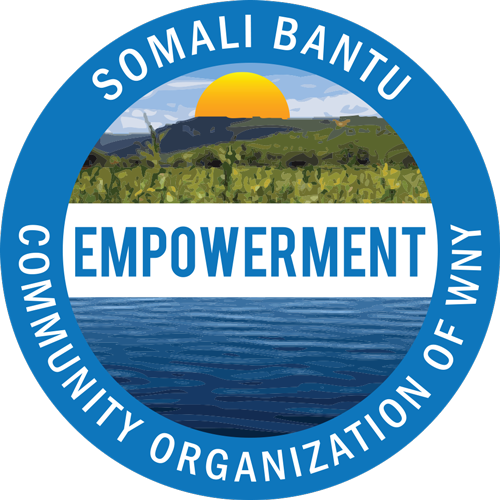The Somali Bantu are hardworking and resilient people who have survived through the hardships of civil war and refugee camps. They are believed to be descendants of various enslaved African tribes originating from modern-day Tanzania, Malawi, and Mozambique. Their ancestors came to Somalia in many ways and for different reasons. Some were brought to Somalia as slaves, captured by Persian and Arabic slave lords in the early eighteenth century. Some came to Somalia as migratory farmers. Others were brought by the Italians and British in later years for agricultural purposes.
In the late nineteenth century, some of the Somali Bantu ancestors escaped or were freed and settled in southern Somalia in the Juba and Shebelle River valleys near the Somali-Kenya border. The Juba valley became a refuge for many of the Somali Bantu ancestors and their offspring.
Before and after Somali Independence in 1960, the Somali Bantu were oppressed and discriminated against at the hands of the Somali government, militias, and herders. However, when the Somalian Civil War erupted in the 1990s, many Somali Bantu families fled the country and made their way to the Dadaab Refugee Camps, situated in northeastern Kenya. In spite of the violence and lack of law and order in Somalia, some families chose to stay there. The opportunities for economic, educational, and political development in the country remain very low for the Somali Bantu people.
Those who fled to the Dadaab Refugee Camps found themselves again to be victims of persecution by the majority Cushitic Somalis. Because safety was not provided in the refugee camps, there were constant attacks from the Cushitic Somalis at nights. As a result, the Somali Bantu as a group requested to return to their ancestral homelands in Tanzania in 1993 and Mozambique in 1997. However, they were denied resettlement in these countries due to lack of resources. After their unsuccessful resettlements, the name Somali Bantu emerged in the refugee camps and was established. The name provided the Somali Bantu with protection and better representation as a persecuted group. It describes a connection between people who have similar dialects, are from Somalia, and have farming roots.
In 1999, the United Nations referred the case of the Somali Bantu people to the United States for a possible review and consideration for resettlement. After a careful evaluation, the U.S. government placed approximately 12,000 Somali Bantus under consideration for admissions.
The Somali Bantu refugees came to Buffalo, NY, in many waves, the first of which happened in the summer of 2003. Shortly after their arrival, the conversation of establishing their own organization began. A small group of Somali Bantu members met in their homes and discussed the needs of their community. In 2007, the SBCO was created and successfully obtained 501(c) (3) status, which was a major turning point for the community. Today, the community has expanded from home meetings and gatherings at a senior center to having their own office.
Mission
Our mission is to educate and empower refugees and immigrants in Buffalo and Erie County, while preserving their traditions, languages and cultures that bond to a dynamic community.
Vision
Our vision is to help build a community that strengthens families to self-sufficiency and become active citizens in society.
Value
We believe in hard work and perseverance in order to improve the quality of life while creating hopes for refugees and immigrants.
